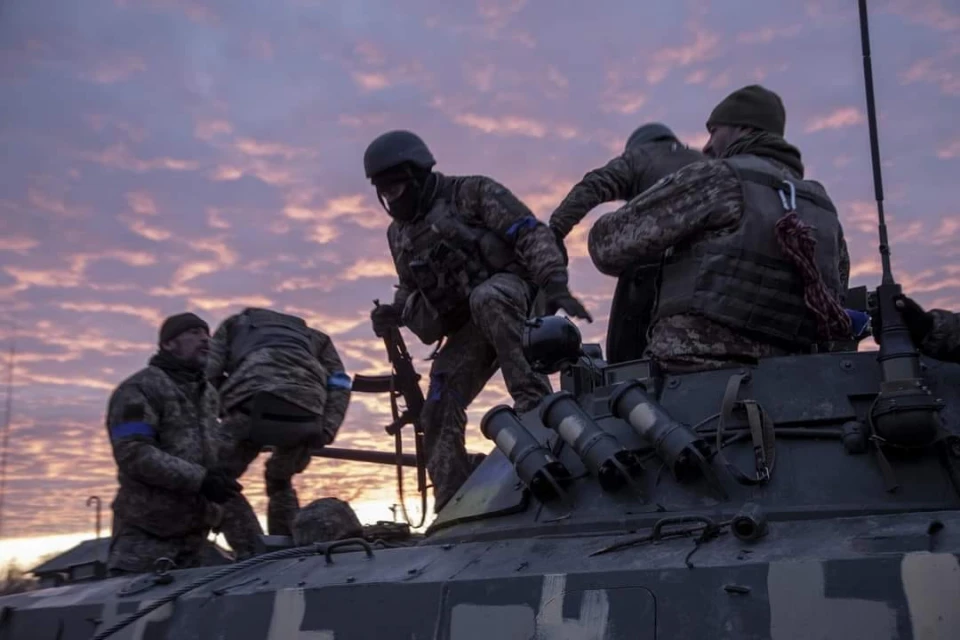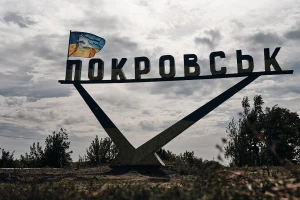
Expert explains Ukraine's "military miracle" in Kursk, challenges near Pokrovsk
Defense Express military expert Ivan Kyrychevskyi has explained why Ukrainian defenders achieved a “military miracle” in Russia’s Kursk region
He shared his view on Espreso TV.
A military expert said, “The Russians haven’t had any real issues with manpower or resources, even in the Kursk region. The problem seems to be with their management. To understand why we saw military success in Kursk but are facing difficulties near Pokrovsk, consider this: In Pokrovsk and other eastern areas, Russian forces are trying to attack with full army units, not only smaller units like an army corps or division.”
According to him, in the Kursk region, Russia is using a so-called “hodgepodge” approach.
“In the Kursk region, the Russians are using what is often referred to as a ‘hodgepodge.’ This means that several brigades are involved, but they are varied in terms of personnel quality, weaponry, and even command structure. That’s why we see a paradox: based on public estimates, Ukrainian troops are fighting against a superior enemy with fewer numbers,” Kyrychevskyi said.
At the same time, he noted that the operation in the Kursk region was worthwhile.
“There are interesting stories about how Russia's Akhmat unit did not engage in combat but instead allegedly followed a strategy reminiscent of the “great” Russian commander Kutuzov, performing a parallel march. This means moving in such a way as to avoid direct contact with the enemy.
Given their different management culture, this explains why Ukraine could not stop the enemy at Pokrovsk and why the situation didn’t improve there. In the Pokrovsk and Toretsk directions, the Russian military units responsible for their operations chose not to engage in internal factional struggles and won in that regard - the Russian command didn’t withdraw additional troops and reserves from those areas. Nevertheless, whether or not it went according to plan, it is clear that the Kursk operation was necessary,” the expert added.
Ukraine’s cross-border incursion in Russia’s Kursk region
On August 6, the authorities of Russia's Kursk region stated that the Ukrainian Armed Forces allegedly tried to break through the Russian border, but were allegedly pushed back. Later, the Russian Defense Ministry reported that "the Ukrainian sabotage and reconnaissance group retreated to its territory.”
Ukraine's Main Intelligence Directorate refused to comment on the statements regarding the Kursk region. However, NV media, citing its own source in Ukrainian intelligence, wrote that the events in the Kursk region "definitely did not involve fighters of the Russian Volunteer Corps, who are fighting as part of Ukraine's Armed Forces.”
The Institute for the Study of War noted that the Russian Defense Ministry, acting governor of the Kursk region Alexei Smirnov, and some propagandists have different versions of the events in the Kursk region.
On August 7, Kremlin leader Vladimir Putin convened the Russian military leadership to discuss the situation in the Kursk region, which he called a "large-scale provocation." At the time, Russian Foreign Ministry spokeswoman Maria Zakharova called on the international community to "strongly condemn the Kyiv regime's criminal attacks on Russian territory."
On the same day, Russian media reported that workers at the Kursk nuclear power plant feared that the plant's management had not prepared for a possible attack by the Ukrainian armed forces.
Additionally, in the Kursk region, Russians have begun forming UAV operator units from civilians, providing them with up to 10 hours of training.
On August 7, a state of emergency was introduced in the Kursk region.
On August 8, the Institute for the study of War reported that Ukrainian troops confirmed advancing up to 10 km deep into the Kursk region as mechanized offensives continued.
On August 8, Russia’s National Guard announced that it had implemented additional security measures at the Kursk Nuclear Power Plant to protect a "particularly important facility."
The Washington Post reported that Ukraine has taken control of the gas metering station in Sudzha, Kursk region. Previously, Russia claimed that the Ukrainian Armed Forces had occupied several border villages and part of the town of Sudzha.
Deputy Pentagon Press Secretary Sabrina Singh stated that Ukraine’s actions in the Kursk region in Russia "are consistent with U.S. policy" and do not cause any escalation.
On Friday, August 9, it was reported that mercenaries from PMC Wagner intend to fight for Russia in the Kursk region.
The Wall Street Journal, citing its own sources, reported that Russian military leaders have decided to withdraw some of their forces from Ukraine to redeploy them to the Kursk region in response to Ukraine’s military operations.
On August 13, John Kirby, Strategic Communications Coordinator at the White House National Security Council, suggested that if Kremlin leader Vladimir Putin is concerned about the developments in the Kursk region, he could choose to end the war.
Since the start of August 14, the Ukrainian Defense Forces have captured over 100 Russian soldiers.
At a meeting with the president on August 15, Ukrainian Armed Forces Commander-in-Chief Oleksandr Syrskyi said that Ukraine had established the first military commandant's office in the Kursk region to provide humanitarian aid to local residents.
At the same time, Ukraine's Ministry of Reintegration of the Temporarily Occupied Territories, together with the military, is currently working on a possible route for a humanitarian corridor for civilians from Kursk to Sumy.
On August 15, The Independent reported that about 2,000 Russian servicemen were captured during an operation by the Ukrainian Armed Forces in the Kursk region.
Ukrainian troops continue to operate in the Kursk region. As of August 19, the Ukrainian Armed Forces took control of 92 settlements.
On August 20, Russian leader Vladimir Putin ordered the military to push Ukrainian forces out of the Kursk region by October 1, 2024.
- News












































